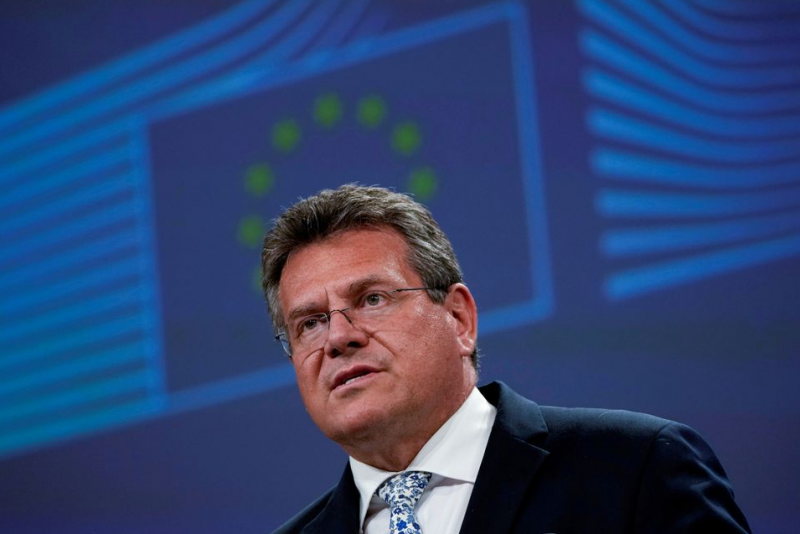The European Union and Ukraine will sign a memorandum of understanding (MoU) covering critical raw materials and batteries as the 27-country bloc tries to diversify supplies following disruptions caused by the COVID-19 pandemic.

The move is part of the European Commission's Action Plan on Critical Raw Materials announced in September to bolster supplies of materials vital to sectors including aerospace, defence, electronics, automotive and renewable energy, as well as energy-intensive industries and the health sector.
European Commission Vice President Maros Sefcovic will sign the MoU in Kyiv on Tuesday, the EU executive said in a statement.
"Securing a sustainable supply of raw materials is an essential prerequisite for delivering on green and digital transition objectives," Sefcovic said.
"Our strategic partnership will go a long way towards boosting the resilience of both Ukraine and Europe, especially as we seek to bounce forward and emerge stronger from the current pandemic that has taken a heavy toll on our economies and societies," he said, without giving details of the deal.
The EU last year updated its list of critical raw materials to include bauxite, lithium, titanium and strontium. China provides 98% of the EU's supply of rare earth elements.
To power up e-car batteries and for energy storage alone, the EU estimates it will need up to 18 times more lithium by 2030 and up to 60 times more by 2050.